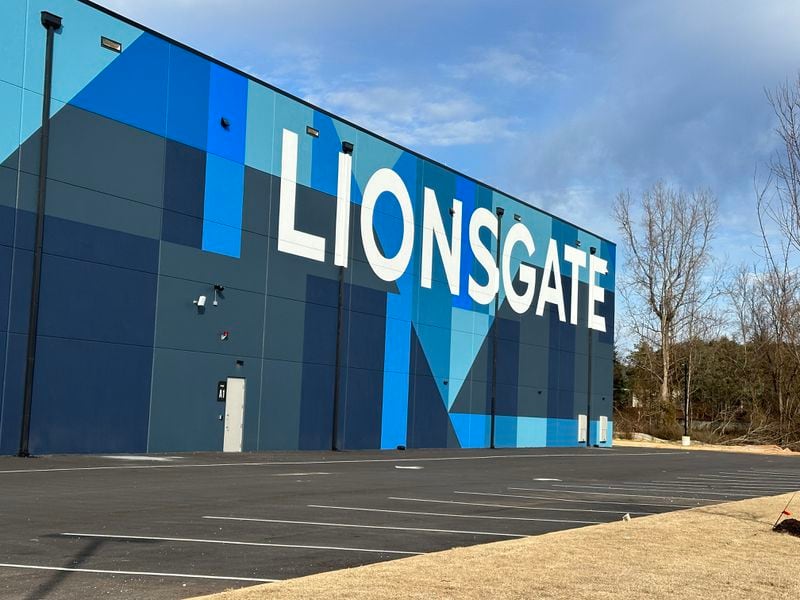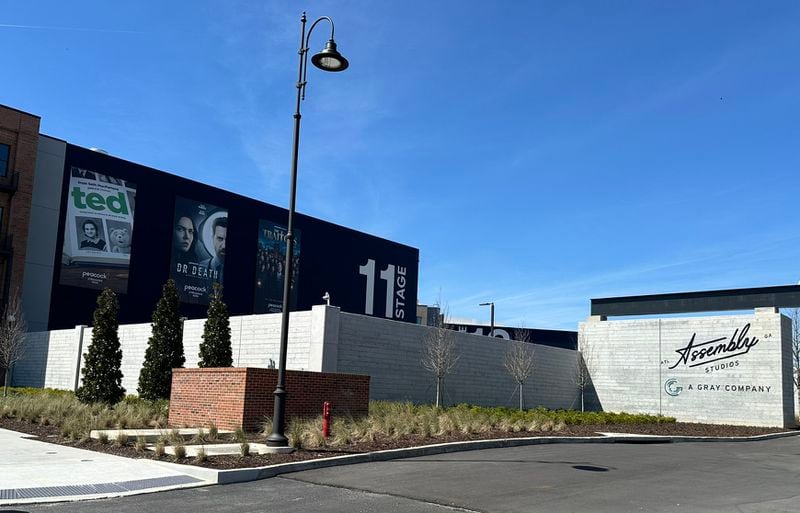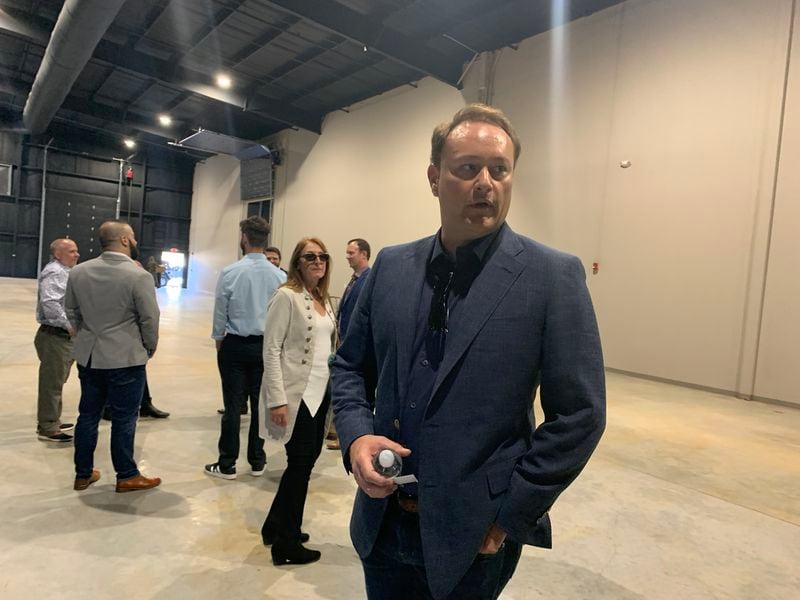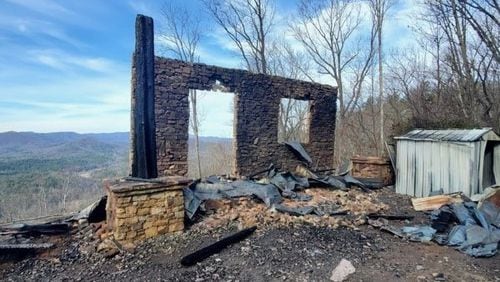When Atlanta media mogul Tyler Perry decided last month to nix an $800 million expansion of his studio in Atlanta, he specifically cited rapidly improving artificial intelligence reducing the need for traditional soundstages.
But there are multiple trends happening in the TV and film business that would also behoove him to hold on to his money.
Hollywood has started pinching pennies on scripted movies and TV shows and business hasn’t come roaring back as fiercely to Georgia as many expected since the end of the recent actors and writers strikes. A building boom in soundstages, launched as Hollywood productions flocked to metro Atlanta in the wake of the pandemic, is delivering acres of new space as demand has gotten soft.
And a new union fight also is looming.
Though many in the industry expect filming to ramp up in the months ahead, particularly after any potential strike threat is resolved, idle stages are causing some heartburn in the industry.
“It’s no secret that new episodic productions are slow to get greenlights currently,” said John Raulet, who runs four properties totaling about 200,000 square feet in soundstage space.
With vacant space available, Raulet said he recently opened his space up for non-TV/film tenants, especially because one of his studios is near the Beltline in an area bustling with development.
“Just poking our head out of the stage curtain to see who may be in the audience if you will,” he added.
Credit: RODNEY HO/rho@ajc.com
Credit: RODNEY HO/rho@ajc.com
Business strains
For at least a decade, Georgia was in rapid growth mode when it came to TV and film production.
After the pandemic hit in 2020, Georgia was the first state to actively re-open and a flood of TV and film productions came to town, fighting for soundstage space. Real estate investors took notice.
Over the past 15 months, five new studios opened in Georgia while several others have added soundstages. The state now has nearly 4.4 million square feet in soundstages, according to data compiled by the Georgia film office, more than doubling the space it had in 2020. That is now the most soundstage space of any single state except California.
Georgia’s film tax credit, widely seen as the driving force behind the state’s filming growth, has become the state’s largest corporate subsidy, providing more than $1 billion in annual incentives to movie and TV production companies in recent years. Local governments, meanwhile, have dished out their own tax breaks hoping to attract a little Hollywood glamor, even as studies have shown the subsidies do not provide governments the bang for the considerable public bucks.
Credit: RODNEY HO/rho@ajc.com
Credit: RODNEY HO/rho@ajc.com
But what had been a tight market isn’t quite so much anymore.
Streaming services, which spent freely from 2018 to 2022, put on the brakes the past 18 months as investors suddenly wanted to see profits rather than just market share growth. Warner Bros. Discovery’s Max streaming service, for instance, has become profitable after a dramatic cutback in spending on content.
CEO Bob Bakish of Paramount Global, which runs Paramount+ and CBS, told analysts last month that for TV, they are prioritizing “lower cost formats, like unscripted and those shot abroad, while maintaining our strength in franchises.”
A year ago, the scripted part of the business was crippled by a pending writers strike earlier in the year, then mostly shut down after the strike began in May. When the actors union joined them in July, almost all scripted TV and film productions disappeared for several months. Most soundstages in Georgia sat empty, save for the occasional independent film or game show.
Part of the reason why actors and writers hit the picket lines last year was a need for protections from the rise of artificial intelligence that could potentially reduce the need for actors and writers. Perry, who opened 12 soundstages in 2019 at his namesake studio complex in south Atlanta, said last month he decided to drop plans to build another 12 soundstages after seeing a demonstration of Sora, the new text-to-video AI technology.
He told the Hollywood Reporter that filmmakers may not need to do location shoots or even build out certain sets if the technology keeps improving, and “that makes me worry so much about all of the people in the business,” whether in front of the camera or behind it.
Two other major unions have started negotiations for their latest contracts with producers: the Teamsters and the International Alliance of Theatrical Stage Employees (IATSE), which cover nearly all crew members who are not actors, directors or writers. And there is fear they too may strike this summer.
“The shows that have come back since the strikes have seen tightened schedules and budgets so a strike seems fairly imminent when IATSE is so determined to be aggressive in this cycle,” said Molly Coffee, a production designer who has worked on shows such as Freeform’s “Single Drunk Female” and BET+’s “First Wives Club.” “At the end of the day, just because our members have had one of their worst years financially in their careers, they will remain united and vote for a strike authorization if the time comes.”
Currently, there are about 40 active film and TV productions in Georgia, according to the film office. That isn’t far off the typical numbers before the pandemic and the most since November of 2022. But capacity is far greater now than two years ago.
Take Assembly Studios. Atlanta-based Gray Television, which is the second largest local TV station owner in the United States, invested more than $400 million to build 22 new soundstages on land that once housed the General Motors auto plant in Doraville. It covers 354,000 square feet of space, 8% of all soundstage space available in Georgia and officially opened last fall.
Credit: RODNEY HO/r
Credit: RODNEY HO/r
To celebrate Assembly’s opening, Gray last fall held a massive gala with 2,500 guests to christen the new space with concerts by Sheryl Crow, CeeLo Green, Gladys Knight and Dionne Warwick.
Gray signed a multi-year deal with major content producer NBCUniversal, which owns the Peacock streaming service, NBC broadcast network and cable networks like Bravo and E!. NBCUniversal is managing Assembly and leases a majority of the soundstages.
Last fall, Gray CEO and Chairman Hilton Howell told lawmakers at a tax credit hearing that Assembly had booked $1 billion worth of projects in 2024.
But Howell, in a Feb. 23 Gray quarterly earnings call with stock analysts, said that isn’t necessarily going to happen.
“We have had three that were coming to our studios initially that ended up getting cancelled by their respective production houses,” Howell said.
Domestic demand for TV and film soundstages has not been as robust as many in the industry projected since the end of the actors strike in November.
“It’s definitely slower than we’d like,” said Mike Clark, general manager at Eagle Rock Studios, which has soundstages in Norcross and Stone Mountain. “There’s a feeling that once Teamsters and IATSE contracts are settled, more shows will start up. But with the threat of another strike this summer, it’s slowed down quite a bit. Unless a new project is able to start up and is finished between now and July, it doesn’t seem to be moving forward at this time.”
Howell, during the analysts call, echoed that sentiment.
“We expect a pretty healthy resumption of production capacity, but exactly when that begins will depend on largely on the IATSE strike or lack thereof,” Howell said.
The possibility of strikes has sent meant more business overseas, where unions are less of a factor. The United Kingdom, which has an unlimited and uncapped tax credit system, like Georgia, now has as much soundstage space as the 6.6 million square feet in Los Angeles, having added 1.1 million square feet in the past two years.
“The market is very competitive for Los Angeles right now, with numerous jurisdictions aiming to build out their own film production infrastructure,” said Philip Sokoloski, vice president of integrated communications for the Los Angeles film office, known as FilmLA. He noted Georgia, New York, the U.K., Ontario and British Columbia are the city’s biggest competitors.
Georgia lawmakers are looking to cap its incentives in ways that could make it more complicated and more cumbersome for recipients such as Disney, Apple TV+ and Lionsgate. The current proposal, set to go into effect in 2026, if it passes, would put in place more hoops to jump through to get the top 30% credit and a limit based a percentage of the state budget to how many tax credits could be transferred in any given fiscal year. This could create a potential bottleneck if business is super robust.
The Georgia Screen Entertainment Coalition (GSEC), which represents most of the studios in the state, has worked behind the scenes to try to make the changes palatable for the biggest content companies to ensure Georgia remains a viable option for major projects.
“Georgia legislators and state leaders have a long history of bipartisan, pro-job creation policy decisions that have allowed our state’s film and television production industry to compete on the world stage,” said Kelsey Moore, executive director of GSEC in a statement. “We are optimistic that Georgia will maintain our position as a top choice for film and television production and see continued growth.”
Credit: RODNEY HO/rho@ajc.com
Credit: RODNEY HO/rho@ajc.com
Joel Harber runs the new Athens Studios in Athens and recently nabbed his first film production at the space starring Atlanta native Danielle Deadwyler. He said though business was slow ramping back after the strike, he thinks it will pick up as the year goes along.
“What we need to do is assure the industry we’re a stable platform to do business,” Harber said. “We made changes in 2021 and have continued to talk about changes the past few years. That is seen as unstable. We need a message that this is going to go untouched for years to come so the industry can make long-term investments.”
Beth Moore, an attorney for Arnall, Golden & Gregory in the entertainment field and former House representative, said she thinks the bill will pass but would prefer the current system.
“The best thing to do to continue job creation is to leave the credit alone,” Moore said. “It is working. It has not led to any kind of budgetary crisis. If anything, it has brought in revenue.”
GSEC said it’s confident the dozens of new purpose-driven, state-of-the-art soundstages built in recent years in Georgia will remain attractive to producers.
“We believe the need for high-quality production space will continue,” the group said in a statement, “and Georgia is stepping up to meet the demands of the industry.”
About the Author
Credit: AJC, AP
Credit: John Spink / John.Spink@ajc.com











